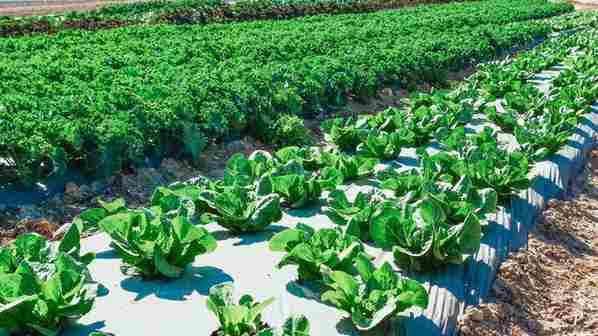Organic farming is the process of farming food, fibre, and other crops without the use of pesticides and other synthetic inputs.
Organic relies on natural enemies of pests, such as predators, parasites, and disease, rather than toxic pesticides. farming can consist of crop rotations with short seasons, the management of livestock, and individual or small-scale irrigation.
What is Organic Farming
Organic farming is an agricultural system that uses ecologically based pest controls and biological fertilisers based largely on animal and plant wastes and nitrogen-fixing cover crops.
The process is aimed at managing the relationship between nature and the environment while providing food production that is healthy for people and the planet.
Organic began in the United States and France in the 1940s in response to the environmental harm caused by the use of chemical pesticides, which were found to be harmful to human health and the environment.
Today, farming is practised in more than 90 countries. The farming process is designed to be as natural as possible, with an emphasis on preserving the soil, water, and air quality of the environment.
Why is Organic Farming Important
Organic farming is important for more than just the environment. Organic farming is also important for health, food security and social equity.
The production of organic pesticides occurs in two ways: by fermentation of microbial materials and by the use of plant extracts. In the first case, a microbial culture is mixed with a food source, such as plant waste, plant extracts, and a nitrogen source.
This culture is then fermented. In the second case, plant extracts are mixed with an organic solvent, such as an organic alcohol, such as methanol, or an organic acid, such as acetic acid, and is then agitated and then allowed to settle.
What are the benefits of Organic Farming
The organic farming movement is one of the most important developments in modern food production.
It has brought about a revolution in the way that food is grown and processed. Organic practises have been shown to be beneficial to the environment, the farmer, and the consumer.
The benefits of organic farming include preserving the health of farm animals, promoting sustainable production, and providing healthier food. Organic pesticides are derived from naturally occurring sources.
These include living organisms such as the bacterium Bacillus thuringiensis, which is used to control caterpillar pests, or plant derivatives such as pyrethrins (from the dried flower heads of Chrysanthemum cinerariifolium) or neem oil.
What are the disadvantages of Organic Farming
Organic farming has been in the limelight for many years. People have debated for years whether it is the way to go. However, there are many disadvantages of organic farming that have been proven.
One of these disadvantages is intensive farming. Many people believe that is more productive than intensive farming. This is not true, as intensive farming is more productive than. Another disadvantage of organic is that it is less productive. yields are lower than intensive farming because
they have a harder time getting rid of weeds and rocks before sowing seeds. Another disadvantage of s that it is less reliable.
Organic farmers are dependent on cultivation to remove weeds and rocks before sowing seeds, which takes more time. The disadvantage of farming is that genetically modified organisms are biologically inferior to the natural organisms.
Also Read
What are the types of organic farming
Organic farming is a method of farming that promotes the use of crop rotations and cover crops, and encourages balanced host/predator relationships.
Organic residues and nutrients produced on the farm are recycled back to the soil. Cover crops and composted manure are used to maintain soil organic matter and fertility. Nitrogen and phosphorus in the soil is regulated by the use of cover crops and crop rotation.
Organic residues and nutrients provide the natural fertility needed for the soil to produce healthy crops and grow healthy plants. Preventing soil erosion is achieved by planting cover crops, crop rotation, and strip cropping. Organic agriculture has been utilised for thousands of years, and is a form of farming that dates back to the early 1800s.
It has gained popularity in recent years, and is now the fastest-growing agricultural sector in the world.
How does Organic Farming influence the environment
Organic farms are less harmful to the environment than conventional agricultural practises. Organic farming uses fewer pesticides, reduces soil erosion, decreases nitrate leaching into groundwater and surface water, and generates less greenhouse gas emissions.
In fact, can also help regenerate soil, increase biodiversity, and improve water quality. Organic farms are not always as productive as their conventional counterparts, but they have a higher yield in areas where there is plenty of sunlight and good soil conditions.
We hope you enjoyed our blog on organic farming. Organic farm is an incredibly important topic,
So it's important to make sure your business is making sustainable, ethical choices! Please visit our website at Hi Daddy Info Thank you for reading, we would love to hear from you about any questions or comments!



